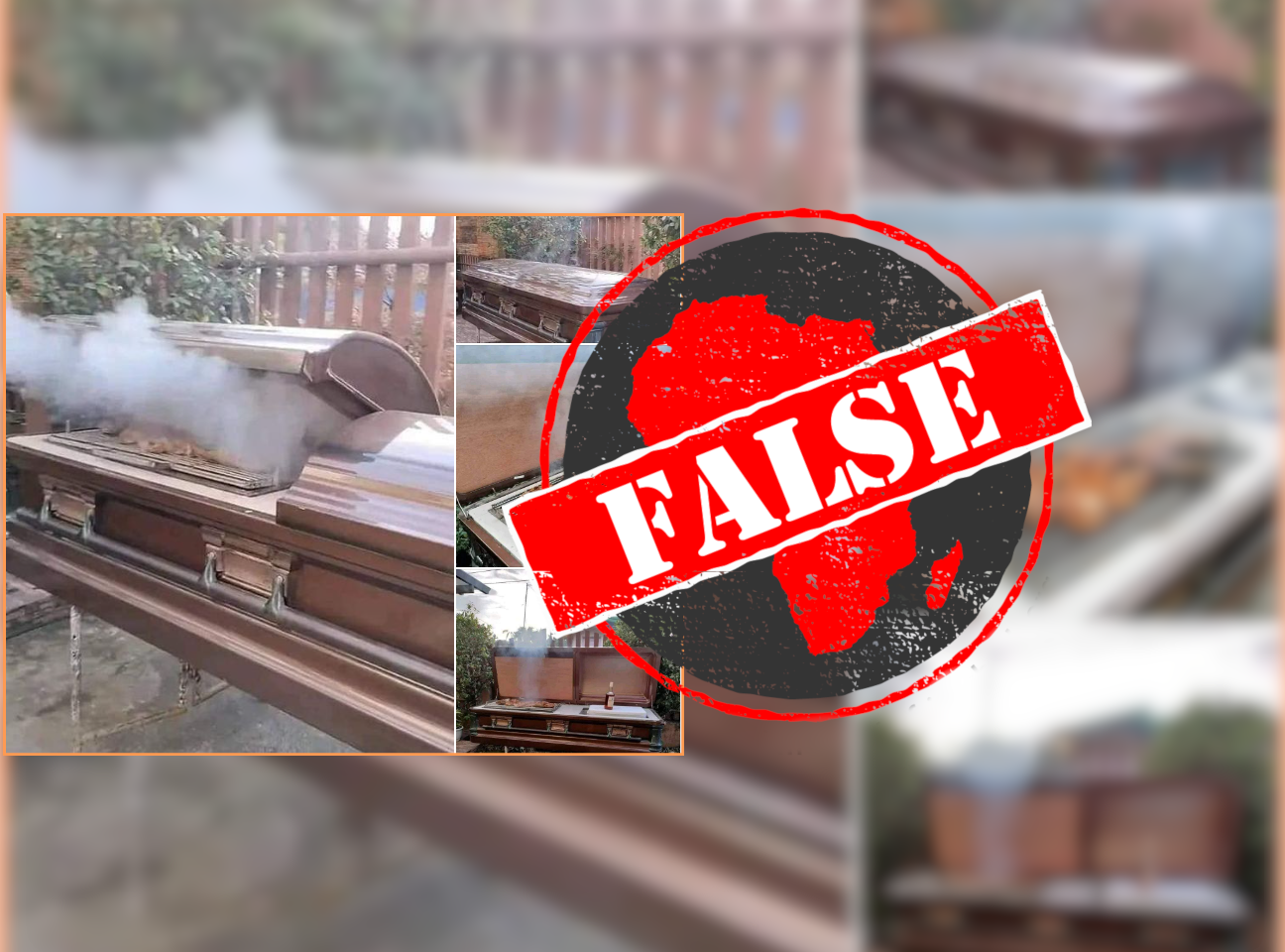IN SHORT: Nyama choma, Kiswahili for grilled meat, is sold all over Kenya. But these photos showing meat being grilled in a converted casket were not taken in the country.
Photos going viral on Facebook in Kenya show a meat grill designed from what appears to be a casket.
They’ve been posted with a claim that they show a newly opened meat grilling business in Eldoret town.
Eldoret is a town in Uasin Gishu county, northwest of Kenya’s capital Nairobi.
“New nyama Choma Choma Joint (Kipkoech Grills) in Eldoret Town,” the caption to the photos in one post reads.
A different post claims the business was opened in Kisii town in Kisii county, also northwest of Nairobi.
“Nyama Choma” is the Kiswahili for “grilled meat” and is a popular delicacy in Kenya.
The photos have also been posted here, here, here, here, here, here and here.
The posts have attracted thousands of likes and comments and dozens of shares. But do they show a business venture in Kenya? We checked.
Photo from Philippines
A reverse image search of the photo reveals the coffin grill was made in the Philippines, an island country in Southeast Asia.
According to Coconuts Manila, an online news website, the grill was made by Vincent Doletin, who runs a funeral shop in North Cotabato province in the country.
He told the news website that it took him two days to build it and added that the unique barbecue station is for personal use.
Doletin had posted the photos and the videos on his Facebook account on 27 February 2023 with the caption “coffin ihawan/sugbahanan. Legit ang lasa …” which roughly translated from the Cebuano language means “Coffin grill. The taste is legit”.
The photos and the video have also been published by other news outlets.
The claim that these photos show a nyama choma business in Kenya is false.
Republish our content for free
For publishers: what to do if your post is rated false
A fact-checker has rated your Facebook or Instagram post as “false”, “altered”, “partly false” or “missing context”. This could have serious consequences. What do you do?
Click on our guide for the steps you should follow.
Publishers guideAfrica Check teams up with Facebook
Africa Check is a partner in Meta's third-party fact-checking programme to help stop the spread of false information on social media.
The content we rate as “false” will be downgraded on Facebook and Instagram. This means fewer people will see it.
You can also help identify false information on Facebook. This guide explains how.


Add new comment